I try to use a recursive function to calculate the Euler number in Java. It's OK when I enter small numbers into this formula:
But when I try to enter a bigger number like 1000 I get infinity. Why it's happening. How I can fix it.
import java.util.Scanner;
public class enumber {
public static long fact(int a) {
if(a <= 1) {
return 1;
}
return a * fact(a - 1);
}
public static double calculate(int i) {
double cresult = Math.pow(fact(i), -1);
if(i == 0 ) {
return 1;
}
return cresult+calculate(i-1);
}
public static void main(String[] args) {
Scanner sc = new Scanner(System.in);
System.out.println("Enter i value: ");
int i = sc.nextInt();
double eresult = calculate(i);
System.out.println(eresult);
}
}
output;
Enter i value:
1000
Infinity
